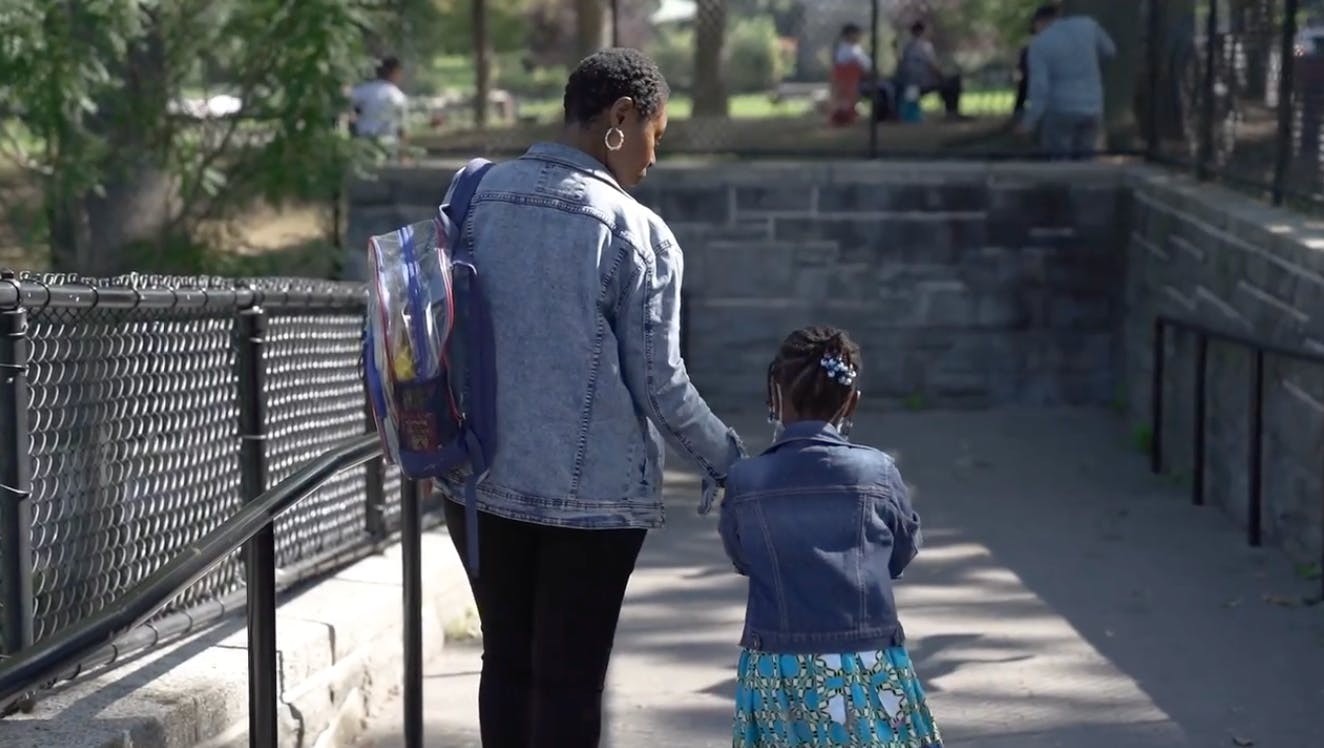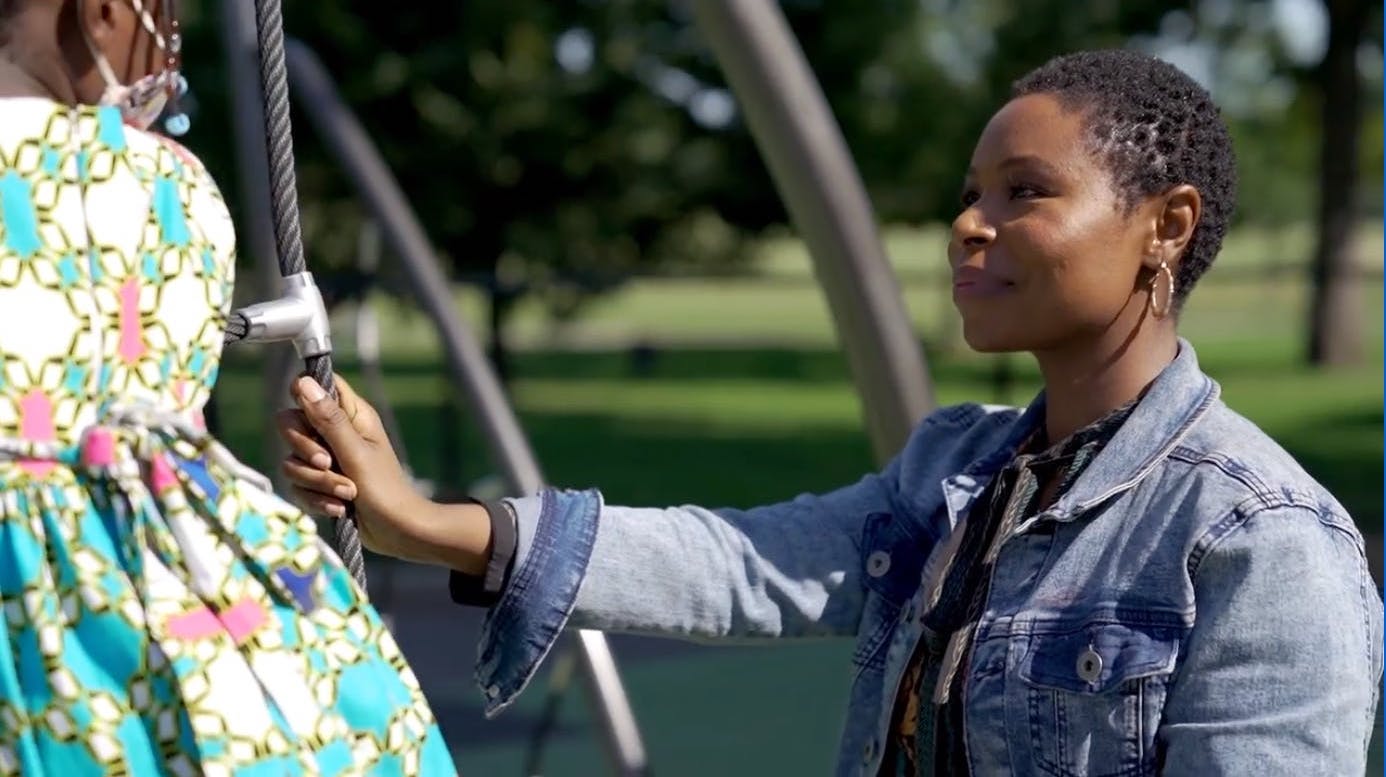Money Was Taboo in My Household, But It Won’t Be for My Kids
By: Kara Stevens
I was seven or eight when I learned that spending money was bad and should be avoided.
My mom had taken me sneaker shopping at the beginning of the school year. From previous experiences, I learned that my brother and I were never to pick sneakers showcased against the wall. We knew they were too expensive and out of the question for a single mother of two from Antigua.
When we entered the sneaker store, I beelined to the bucket with discounted sneakers bundled together with rubber bands. Though I hated them all, I considered the search a challenge I could win.
I always craved my mother’s approval in all things, big or small. I thought that finding a pair of sneakers from the budget bin would make her happy, and being an obedient daughter was more important to me than finding a cool pair of sneakers.

But in the checkout line, I felt I had failed her. When my mother pulled out her money to pay for the sneakers, she looked incredibly sad, so much so that I said, “Mom, you look so sad when you spend money.” As a child, I was trying to find a way to comfort her despite the laughter from the other adults behind her.
Disappointing her and losing her approval was something I vowed I could never risk again, which included never asking for too much. In doing so, I made the amount of money I saved a measure of happiness. I was convinced I would be in a better mood when I didn’t have to spend money, despite the nature of the purchase.
For twenty years, I repeated one of the biggest financial missteps that most of us overlook—believing that what we learned about money as children is the only way to relate to money as an adult.
When I entered therapy to discuss some of life’s challenges, I noticed that my perception of money was a central theme. Once I realized that my scarcity mindset played a role in keeping me from truly creating a life I loved, I was motivated to rewrite my money story.
So, for the greater part of my 30s, I worked on healing and replaced my negative thoughts about financials with encouragement. With this approach, I could be more intentional and kinder to myself, allowing me to grow, enjoy my life, and practice beneficial money habits. More specifically, I eliminated $65k of student loan debt, bought a home, built an emergency fund and a nest egg while allowing myself to travel, intentionally splurge, and be generous to friends and family without fearing I’d be penniless.
My newfound approach to money management became even more important when I learned I was expecting a little girl.
I promised myself and my daughter I would do as much as possible to ensure she wouldn’t have to heal her relationship with money as an adult. I vowed she would learn how to have a healthy relationship with spending and saving from the start.
In our home, my husband and I normalize discussions around money by exposing our daughter to conversations at the conceptual and tactical levels. For example, we teach her that money is a tool to be used in saving, spending, donating, and investing.

We also give her opportunities to interact with money in the “real world.” My daughter, now six years old, regularly accompanies me to the bank, where I explain the process of deposits and withdrawals. I even ensure she signs her own checks given to her by her grandmother (and help her review and understand her account balance). I also guide her thinking through purchase decisions while shopping, giving her the tools to make independent spending decisions rather than handing down an unexplained yes or no to her requests.
As a former educator, I teach her lessons about money in a kid-friendly way using books like Happy Birthday Mali More and A Chair for My Mother, which explore themes of overconsumption, generosity, budgeting, and goal setting. And even when we watch her favorite TV shows or YouTube videos, I talk about the power of advertising and its role in influencing people’s buying behaviors.
As she gets older, I’ll continue introducing her to more age-appropriate conversations and decisions that will promote critical thinking and problem-solving.
In hindsight, I understand now that poverty, or fear of it, preoccupied my mother, even as a nurse with two master’s degrees and a steady government job. In other words, she felt poor even though in the measure of dollars and cents, she was nowhere near it.
And now, as a mother, I respect her choices, but I choose to do something different to break the generational fear of money in my household.
Facet Wealth, Inc. (“Facet”) is an SEC registered investment adviser headquartered in Baltimore, Maryland. This is not an offer to sell securities or the solicitation of an offer to purchase securities. This is not investment, financial, legal, or tax advice. Past performance is not a guarantee of future performance.

